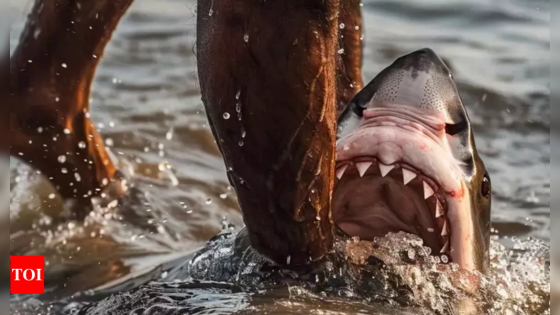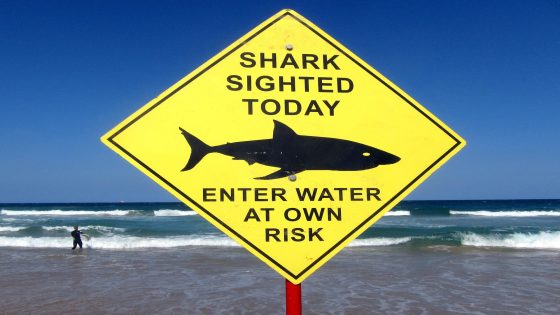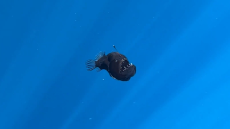A Canadian tourist suffered severe injuries during a shark encounter near the Turks and Caicos islands on February 7, 2025. The 55-year-old woman, whose name has not been disclosed, lost both hands and sustained significant damage to her thigh while attempting to photograph a shark close to the shore.
- Canadian tourist attacked by shark in Caribbean
- Victim lost both hands and thigh injury
- Husband confronted the six-foot predator
- Shark believed to be a bull shark
- Local authorities responded to the incident
- Beach closed for public safety measures
The incident took place near Blue Hills, Providenciales, where the woman was swimming and trying to take pictures of the shark. Eyewitnesses reported that her husband bravely attempted to fend off the six-foot predator while family members watched from the beach. The victim suffered devastating injuries, including the loss of one hand at the wrist and the other midway up the forearm. Additionally, she sustained a serious wound to her upper left thigh.
Local authorities responded promptly, with the Royal Turks and Caicos Islands Police confirming they received a report of the attack at 10:33 AM. Medical personnel arrived quickly to assist the victim, who was then rushed to Cheshire Hall Medical Center for treatment. Following initial care, she was transferred to another facility for specialized medical attention. Despite the severity of her injuries, medical professionals anticipate a recovery.
In the aftermath of the attack, the Department of Environmental and Coastal Resources (DECR) closed the beach from Thompson’s Cove to Froggies ATV until the following Sunday afternoon. Officials are urging visitors to exercise caution while engaging in water activities. They recommend swimming in designated areas, avoiding murky waters, never swimming alone, and not feeding marine life to prevent similar incidents.
This incident highlights the potential dangers of swimming in areas where sharks are present. Tourists are encouraged to follow safety guidelines and remain informed about marine wildlife to prevent future encounters.

































